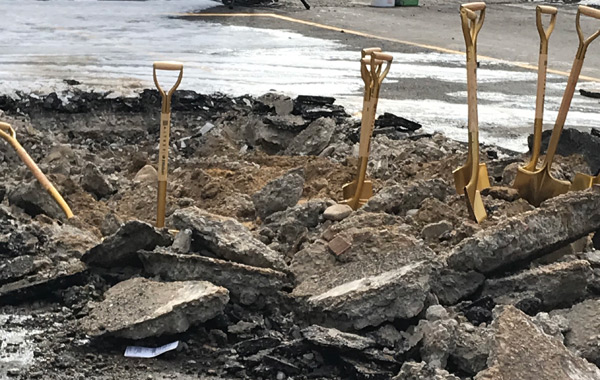By Richard Lyall
RESCON
The time has come for Ontario to take the next step to streamline and improve the approval process for residential developments.
Such action is needed and essential for our economy to recover from the COVID-19 pandemic. We are simply not producing enough housing to keep up with demand, which will slow growth. A more modern, standardized and electronic permitting system would go a long way in moving us in the right direction.
The permitting process should be working in lockstep with the industry and support developers. They shouldn’t have to deal with heavy paper trails and wait extraordinary periods of time for permits to be approved.
Seamless, easy and digital
The system should be seamless, easy to understand and completely digitized. Improving the permitting system could shorten the building process by six months and potentially cut the housing supply deficit in half.
To their credit, a few municipalities have started adopting e-permitting systems as a means of improving the process. Such systems have proven to be effective in helping jurisdictions around the world improve their efficiency.
The problem is that there is no standardization of these e-permitting systems. The result is a patchwork of systems that can vary from municipality to municipality. This can pose problems, particularly for provincial agencies such as conservation authorities that might have to deal with a number of different municipalities.
We therefore need unified, province-wide standards for data and information exchange during the development approval process. Such common standards would harmonize the building permit and development approval process and therefore reduce the cost of redundant customization in every municipality.
Myriad benefits
There are myriad benefits to adopting a common standard. Everybody involved in the approval process – from builders, developers, designers, architects and engineers – would be working on the very same platform. This would no doubt make the system easier to understand and navigate and avoid adding to confusion.
Additionally, this would save those in the industry time and money when seeking approvals across different municipalities.
The residential construction industry has for years been frustrated by a complex and fragmented permitting system. Uncertainty about submission requirements due to varying jurisdictional rules and timelines has led to subsequently higher operational costs to develop properties and resulted in delayed or cancelled projects. This has contributed significantly to the well-documented housing supply crisis that we now face. With an expanding population, the need to increase supply of housing has never been greater.
The Residential Construction Council of Ontario believes that a more unified approach and standardized set of data and information exchange requirements would benefit the entire industry, as everybody would be singing off the same song sheet. This would speed up the process and lead to more compliant applications.
That would certainly be music to our ears.

Richard Lyall is the president of the Residential Construction Council of Ontario (RESCON).












